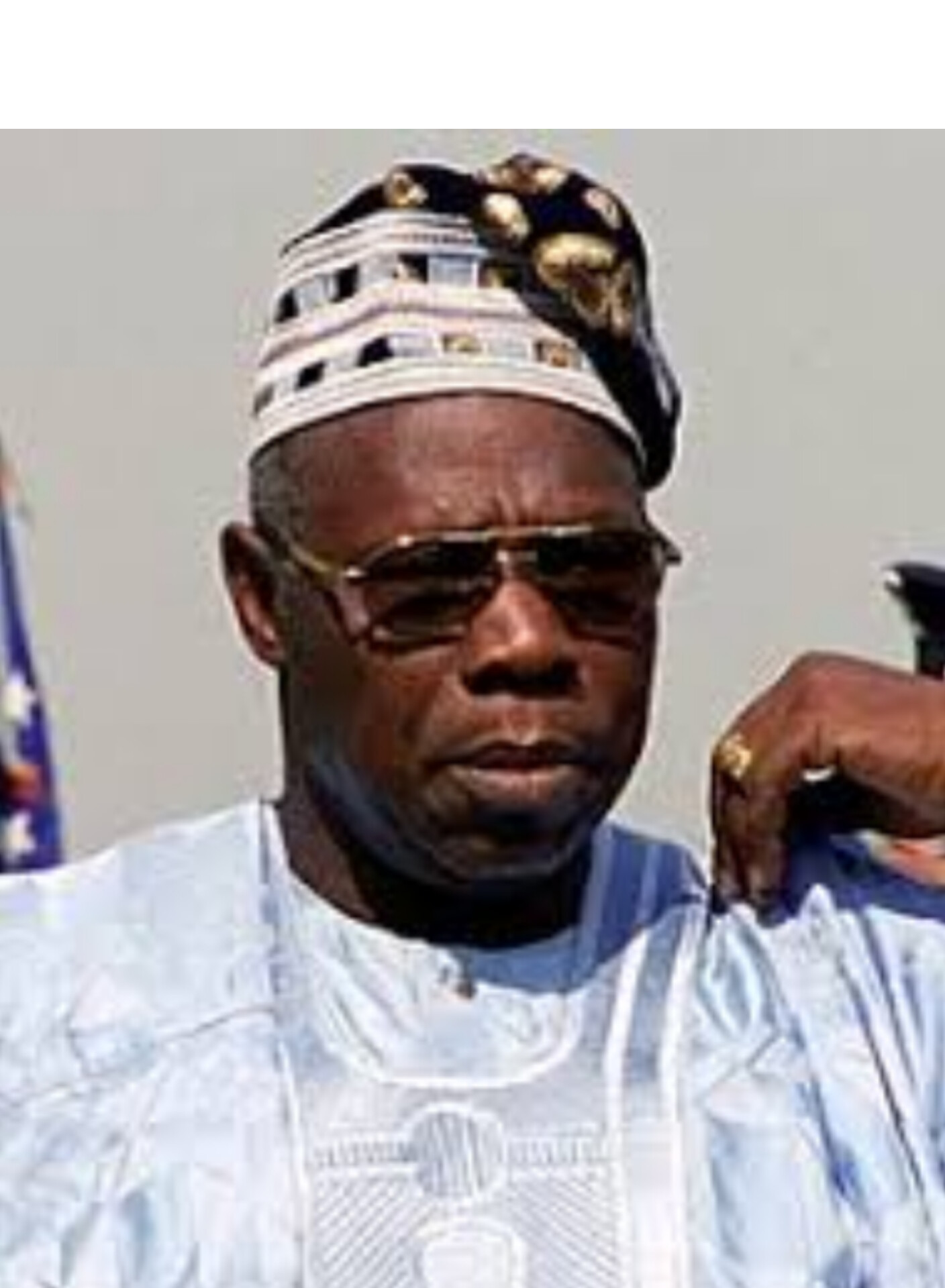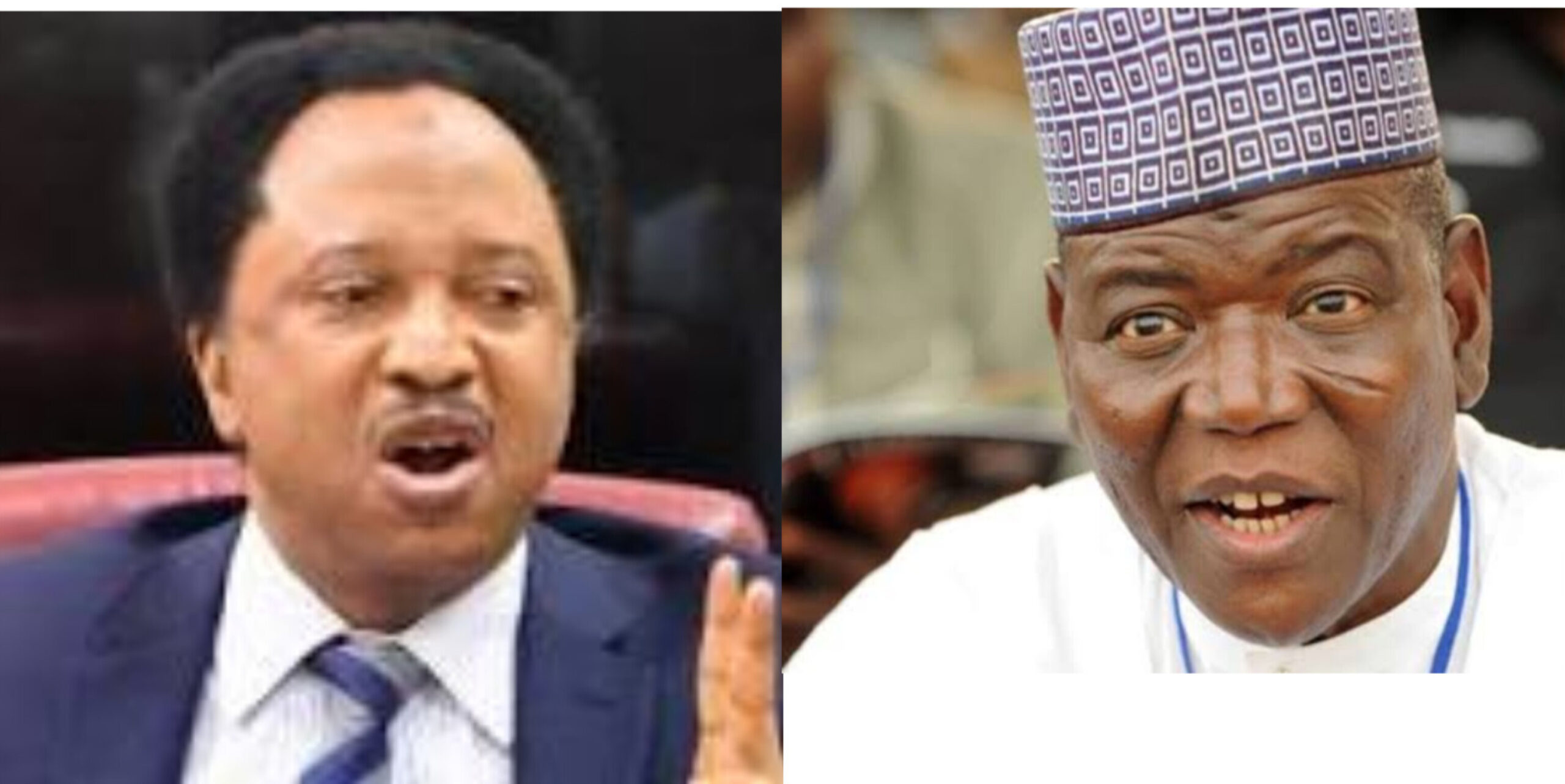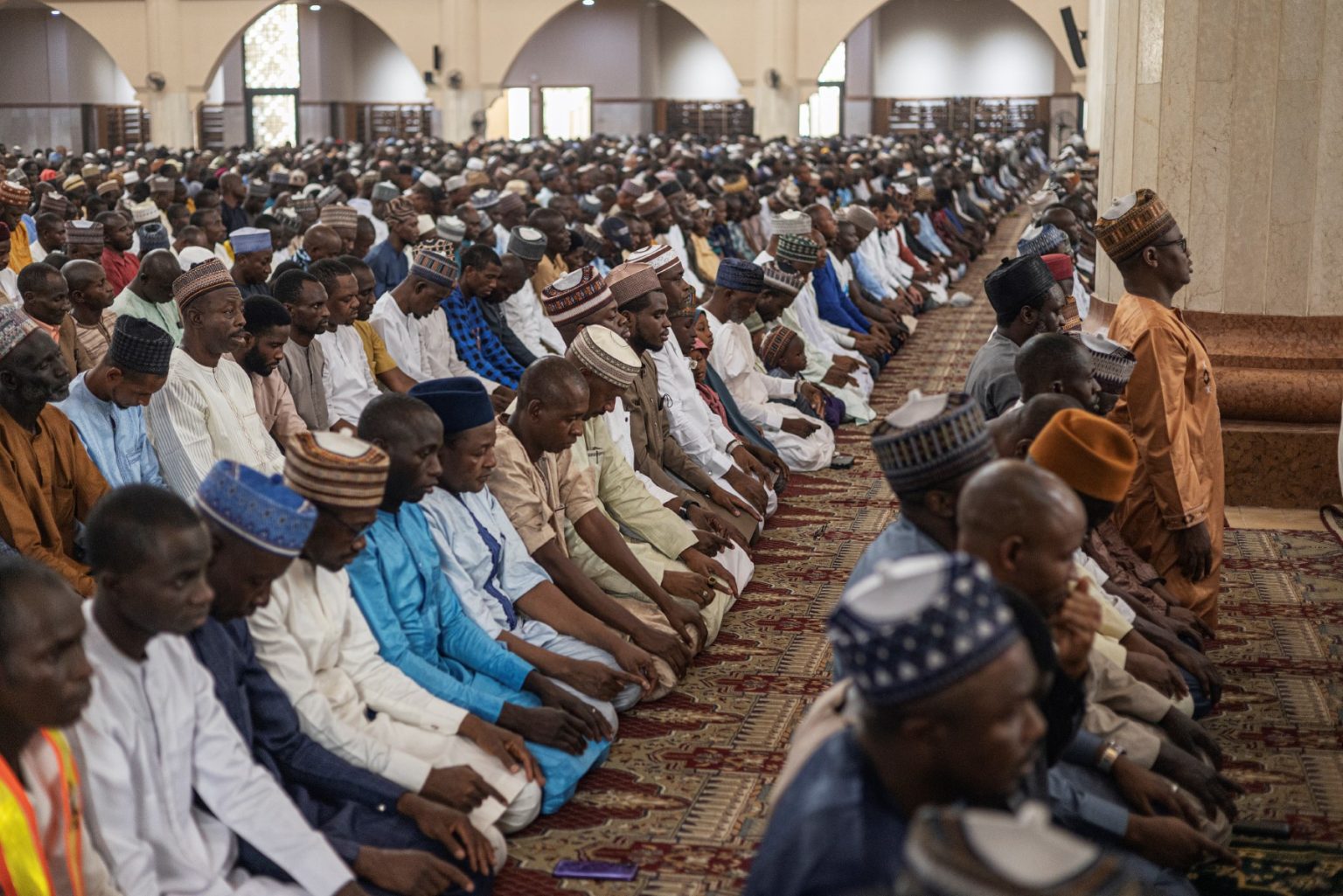National
FG should deploy funds for clamping down on protesters to empower them, Hon Ikwechegh

***’You can’t tell people to tighten their belts when you are living large’
***Wants 2025 budget to reach NASS for scrutiny by September
Honorable Member representing Aba North/Aba South, Alexander Mascot Ikwechegh9 has advised the Federal Government to direct the funds for clamping down on protesters over the EndBadGovernance planned protest to empower them to learn one skill or the other so they can be self reliant.
The Nigerian Government has been employing all known tactics, subtle and physical force including propaganda to ensure the EndBadGovernance protest billed for 1St August does not hold.
Speaking against the backdrop that the Government is mobilizing forces to clamp down on the protesters, Hon Ikwechegh reminded the President that protests are part and parcel of democracy
“I advise the government, the monies you would channel towards clamping down on demonstrators, why not appropriate them for the unemployed youths to learn one skill or the other and channel them into places where they can earn a living.
“Why not prepare these young men and women to learn Technology that will help us identify the people that are coming to steal our crude oil?”
He said there are good ICT people that can use ICT to unravel the mystery behind crude theft
Speaking also on the issue of banditary that has made it impossible for farmers in the North to access their farms he asked the Government to use the money to recruit a bunch of people for forest protection, farm prprotection by setting up something like a Farm Protection Agency.
“That money that you would have given to police and military to fight civilians ue that money, set it aside, pay those boys, to create some type of technology that will help to put what you call sensors in different farms to identify people that are actually coming in to chase farmers away.
“Just find a way to channel their energy towards something productive instead of waiting and looking for protesters to clampdown on.”
“The truth is this, there’s so much hunger in the land. I don’t think Nigeria has had it this bad except for maybe just a couple of years post-civil war period. People can barely buy food to eat.
“It may be slightly difficult for the political class, especially people that have been successful for a long time to truly understand the plight of the people as of today.
“There are certain things that go on and when the poorest of the poor gets to hear them, it breaks their heart and that is why people are very interested about this protest.
“You can’t be telling people to tighten their belt when governors, president, ministers are still busy driving bulletproof Lexus 600 SUVs.
“You see one governor riding on 30 cars. You see one minister riding on 15 cars. You see the president riding on 50 cars and then you expect them to tighten their belt.
“If government is truly interested in having people’s belts tightened, government should live by example. They should set that example and the president can say, okay, I’m moving around with four cars, five cars, bulletproof vehicles. He’s the president.
I mean, it’s something that he deserves to do. But moving around with 50 cars, I mean, this is just a few, of course. And then we’re caught down on a lot of different things.
Do we actually need the number of people that are being paid in government? Let me explain this. From a technocratic or entrepreneurial standpoint, when an entity, a business entity begins to fail, what it does is it cuts on costs. What is the federal government doing to cut costs of governance? There is a pervasiveness of prodigality, total avoidance of frugality in the day-to-day running of government.
“What is the government doing to cut governance, cost of governance? That has to be done. While preparing the budget, do you bring consultants to take time to scrutinize the content of what is inserted in the budget?
“When it gets to us here, you give us one month to scrutinize this budget. How do we scrutinize the budget within one month? And then everybody’s rushing.
“By right, in September, as soon as we are resuming session, the budget should be on our table. The president should present the 2025 budget so that we can take between September and December to scrutinize the budget and then approve it. If there are things that we feel shouldn’t be there in the budget, then we will quickly do it.
“The legislative arm of government should remain independent. The judicial arm of government should remain independent. The executive arm of government should remain independent.
“These are little, little things that we ought to do for the country to move forward. A popular senator once said, if you tell the truth, you die. If you tell a lie, you die.
It’s better I tell the truth and die so that I know that I spoke the truth. Now, Nigeria cannot possibly be poor. Nigeria is a powerful country.
I don’t know if there are elements from outside Nigeria that is selling this very nefarious, malevolent, and ominous narrative. Because Nigeria is a rich country. It’s not a poor country.
On the issue of crude oil theft, he asked rhetorically, “But who are the people that man our waters? Who are the ones that are allowing those vessels to sail into our shores and lift our oil and move back to wherever it is that they came from unaccounted for? “Who are the people that are managing our mining industry? The gold in Zamfara, as I hear, can literally power this country. Why are we not harnessing what we have? Oil theft is a term that we have heard over time. It has literally become a platitude that people throw around all the time.”
“Why should there be hunger if we harness our oil, harness our natural resources?”
National
At Achebe Forum, Obasanjo Labels Nigeria a ‘Failing State’ Criticizes Tinubu’s Leadership

Former President Olusegun Obasanjo has expressed sharp criticism of President Bola Tinubu’s administration, stating that Nigeria’s decline is now evident to “every honest observer.”
Speaking at the Chinua Achebe Leadership Forum at Yale University in the U.S., Obasanjo attributed the country’s deteriorating state to leadership failure, pointing specifically to Tinubu’s governance, which he referred to as “Baba-go-slow and Emilokan.”
In his keynote address titled “Leadership Failure and State Capture in Nigeria,” Obasanjo highlighted that pervasive corruption and mismanagement have worsened Nigeria’s challenges, driving the country deeper into insecurity, division, and underdevelopment.
He quoted the late writer Chinua Achebe, who in his book The Trouble with Nigeria argued that the country’s fundamental problem is a failure of leadership, not a flaw in its people or resources. According to Obasanjo, this diagnosis remains as relevant today as it was over 40 years ago.
Obasanjo cited works by American experts Robert Rotberg and John Campbell, who have characterized Nigeria as a “failed state.” Their argument, he noted, suggests that Nigeria’s inability to maintain security and stability has serious implications for Africa and the world at large.
Additionally, the former President described “state capture” as a pressing issue in Nigeria, where powerful individuals and groups exploit government resources and policies for personal gain. Obasanjo argued that this corruption undermines national interests, with influential elites shaping the country’s legal and economic systems to benefit themselves. Such practices, he warned, compromise public welfare, affecting the quality of education, healthcare, and infrastructure development.
In reflecting on Achebe’s legacy, Obasanjo praised the late author’s commitment to truth and the moral foundation he established for Nigeria. He urged Nigerians and the international community to recognize the dangers of state capture and work towards restoring a governance model that prioritizes the public good.
National
Sule Lamido, Shehu sani disagree over National Security Adviser

The senator who represented Kaduna Central Senatorial District in the 8th National Assembly, Shehu Sani has disagreed with a former Governor of Jigawa State, Sule Lamido over national security issues
Lamido had taken a strong position against the current National Security Advisor (NSA), Nuhu Ribadu accusing him of compromising his professional integrity and acting more like a spokesperson for President Bola Tinubu than fulfilling his constitutional role.
Sani advised Lamido to at least appreciate how the Tinubu led Administration tackled insecurity instead of politicizing it in his comment on the National Security Adviser.
Ribadu who was basking in the euphoria of the recent claims of decimating the insurgents cautioned anyone “not to dare Tinubu”, espercially the new Lakurawa Insurgents a development which infuriated the former governor of Jigawa State and a Chieftain of the Peoples Democratic Party,(PDP), prompting him to take to his verified facebook wall to describe the NSA as “loquacious, flippant and qualified to have been Tinubu’s Minsiter of Information instead of NSA.”
Lamido Criticizes NSA for Sycophantic Behavior, Urges Focus on Duties.
Lamido in his comment had expressed concerns over the NSA’s behavior, particularly his past actions as the Chairman of the Economic and Financial Crimes Commission (EFCC) under President Olusegun Obasanjo. Lamido reminded Nigerians of the NSA’s controversial remarks, including his public labeling of prominent governors—such as Tinubu, Kalu, and Akume—as the “most corrupt.” Lamido pointed out the stark contradiction between the NSA’s earlier criticisms and his current position, serving under the same figures he once condemned.
The former governor called the NSA’s decision to join the administration of President Tinubu—a leader he previously described as corrupt—a “singular mistake,” one that Lamido believes has tarnished the NSA’s credibility and character. “You are not a spokesperson for the President, you are a National Security Advisor,” Lamido emphasized, urging the NSA to return to the professionalism that has historically defined the role.
Lamido argued that previous holders of the NSA position, including the late Umaru Shinkafi, General Gusau, and Colonel Dasuki, all displayed discipline and a low profile, focusing on security matters without resorting to public displays or sycophantic behavior. Lamido lamented that the current NSA’s behavior reflects a departure from this standard, pointing to his increasingly vocal and partisan approach.
Rather than fulfilling his duties as an anonymous and diligent security advisor, Lamido claimed that the NSA’s moral dilemma and excessive displays of loyalty to the president have shifted him into the role of a “Minister of Information,” undermining the neutrality and importance of his position.
In closing, Lamido urged President Tinubu to allow his NSA to regain focus, remove his fears, and return to the professional standards expected of someone in such a sensitive and critical role. The criticism continued to ignite debates about the role of the NSA and the expectations of public office holders in Nigeria, with many calling for greater transparency and consistency from those in power.
Reacting, Shehu Sani countered Lamido in a statement on Friday in Abuja, saying there should be a credit and a commendation for an administration that inherited multi-faceted security challenges ,but which has been reduced to the barest minimum, wondering how the elderly statesman failed to acknowledge the many triumphs of government in bandits hotbed regions in the north.
Sani who served in the upper legislative Chamber in the 8th National Assembly said, he witnessed to the appropriation budget allocated to security which unfortunately did not abate security challenges before now, expressing that Nuhu Ribadu has achieved what many of his predecessors have failed to accomplish despite the hundreds of billions spent in the name of defence and security in the past;
According to him, bandits have been neutralized to a large extent, thus encouraging government in this direction until total victory should have been ideal rather than playing haywire politics which he said may not help the yet-volatile situation in the North.
He said: “Neutralisation of top bandit leaders, end to mass abductions of students in northern schools,
“Securing rail lines and major northern highways hitherto notorious for kidnappings. The prompt response to terrorist attacks on power lines is worth mentioning.
“Security challenges are not over but in all indices of comparison, he has performed better and set unprecedented records. His political critics are fully entitled to their views ,but his delivery on his mandate is unparalleled.”, Sani concluded.
National
Concerned Religious Prayer Forum Responds to Criticism of National Prayer Initiative

The Concerned Religious Prayer Forum has issued a statement clarifying its mission and responding to recent criticisms surrounding its seven-day national prayer initiative.
Established as a non-governmental organization on January 9, 2024, the Forum emphasizes that it is an independent group composed of citizens motivated by a shared desire to promote peace, unity, and prosperity in Nigeria.
The initiative has drawn scrutiny, particularly due to its involvement of high-profile figures, including First Lady Senator Oluremi Tinubu and National Security Adviser Nuhu Ribadu, as leaders of the prayer effort.
In the statement, Director General, Chief Segun Balogun Afolorunikan of the Forum reiterated that the prayer campaign is not government-driven or politically motivated, but rather a spiritual call for Nigerians to come together and seek divine intervention for the country’s challenges.
The Forum stated that it was not seeking political endorsement but instead believed that the involvement of such respected figures would inspire broader national participation.
Citing religious scriptures, the Forum stressed the role of prayer in supporting and strengthening efforts for national progress.
The Bible, according to 2 Chronicles 7:14, encourages prayer as a means of healing and unity: “If my people, who are called by my name, will humble themselves and pray and seek my face… then I will hear from heaven, and I will forgive their sin and heal their land.”
Similarly, the Quran in Surah Al-Baqarah (2:186) reminds believers that “I respond to the invocation of the supplicant when he calls upon Me.”
The Forum further addressed critics who questioned the efficacy of prayer in resolving the nation’s issues, insisting that divine intervention does not replace the need for diligent work but complements the efforts of the people. “This initiative is not about replacing hard work but about seeking spiritual guidance and collective unity to overcome the challenges facing the nation,” the statement read.
Encouraging all citizens and leaders to support the prayer initiative, the Forum called for unity in Nigeria’s pursuit of peace and prosperity. It urged Nigerians to set aside differences and work together in both practical and spiritual ways to help heal and build the nation.
The Concerned Religious Prayer Forum concluded its statement by inviting Nigerians to join in prayer, stating, “As we strive for national progress, prayer continues to serve as a catalyst for peace, growth, and development in Nigeria.”
-

 Crime1 year ago
Crime1 year agoPolice nabs Killer of Varsity Lecturer in Niger
-

 News10 months ago
News10 months agoFCT-IRS tells socialite Aisha Achimugu not to forget to file her annual returns
-

 Appointment1 year ago
Appointment1 year agoTinubu names El-Rufai, Tope Fasua, others in New appointments
-

 News From Kogi1 year ago
News From Kogi1 year agoINEC cancells election in 67 polling units in Ogori-Magongo in Kogi
-

 News From Kogi1 year ago
News From Kogi1 year agoEchocho Challenges Tribunal Judgment ordering rerun in 94 polling units
-

 News1 year ago
News1 year agoIPOB: Simon Ekpa gives reason for seperatists clamour for Biafra
-

 Metro8 months ago
Metro8 months ago‘Listing Simon Ekpa among wanted persons by Nigeria military is rascality, intimidation’
-

 News10 months ago
News10 months agoKingmakers of Igu/ Koton-Karfe dare Bello, urge him to reverse deposition of Ohimege-Igu
